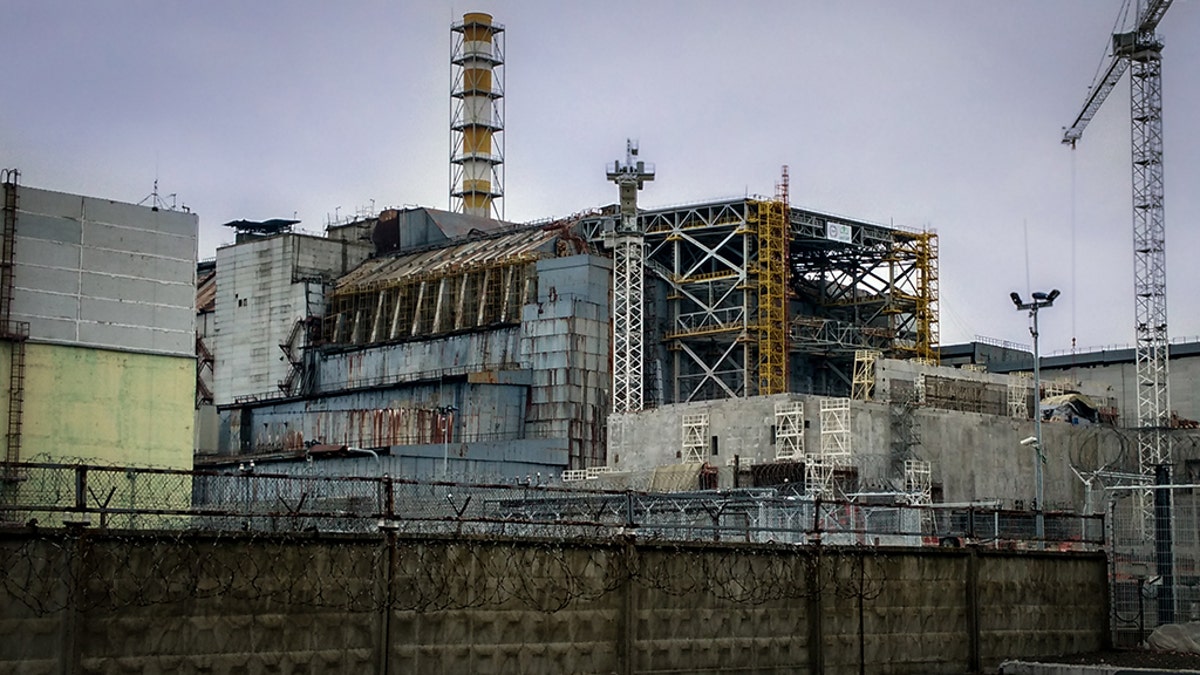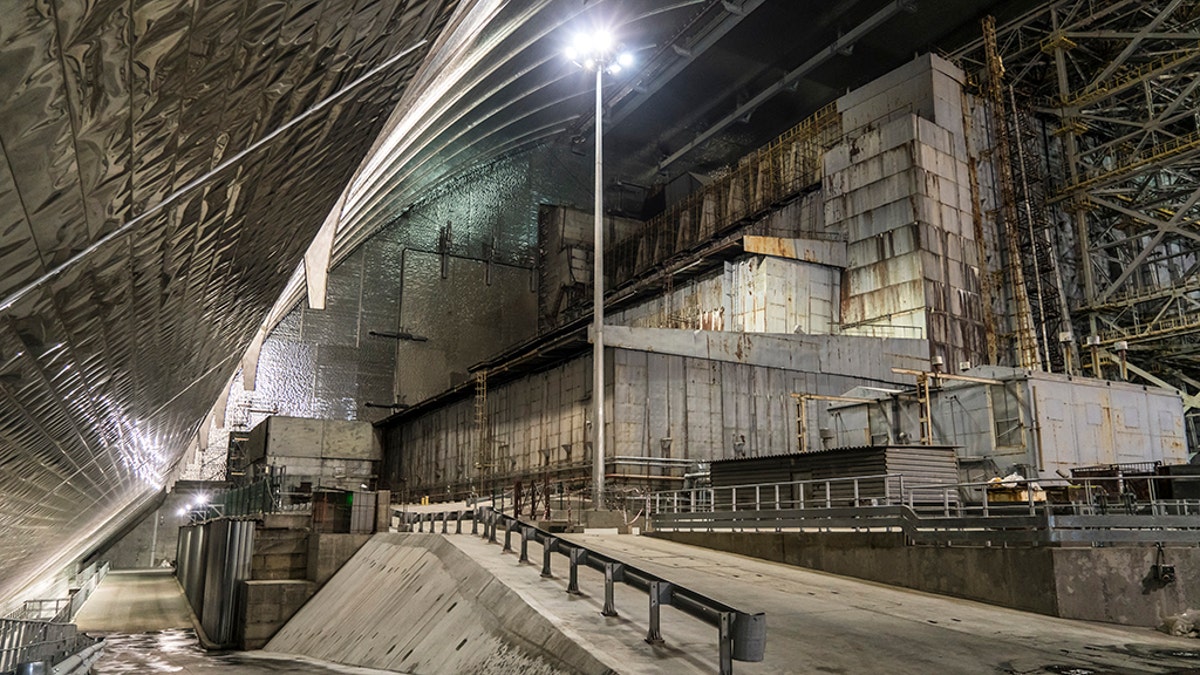Fox News Flash top headlines for August 7
Fox News Flash top headlines for August 7 are here. Check out what's clicking on Foxnews.com
The Chernobyl nuclear power plant's massive "sarcophagus," which protects its radioactive reactor, is being dismantled because it could collapse.
When the nuclear reactor's core exploded during a safety test in April 1986, sending poisonous plumes of radioactive waste into the air that spread to parts of Russia and Europe, thousands of workers scrambled to build a gigantic concrete and steel covering to contain the radioactive materials that included uranium and plutonium.
That cover was designed to be sturdy, but as Business Insider reports, over the years corrosion has occurred due to water finding its way in via openings in the ceilings and the building's unsealed joints.
CALIFORNIA WILDFIRES 'TOO EXTREME' FOR BIRDS THAT THRIVE IN BURNED OUT FORESTS

The ruined no. 4 reactor of Chernobyl nuclear power plant in 2016 (iStock)
Now, the Ukrainian company handling the site said the sarcophagus has a "very high" chance of collapsing and that gravity is what's kept the structure tethered to its supporting blocks.
"The removal of every element will increase the risk of [the facility's] collapse that in turn will cause the release of large amounts of radioactive materials," the company, SSE Chernobyl NPP, said in a statement announcing the contract to construct a new shelter.
However, any radiation that could leak would probably not make its way into the atmosphere.
For nine years now, workers have been building a 32,000-ton shell around the sarcophagus that's known as the New Safe Confinement structure -- which is expected to keep the area confined for another 100 years.
GIGANTIC BLACK HOLE WITH MASS 40 BILLION TIMES THE SUN FOUND BY SCIENTISTS

A view inside the 'New Safe Confinement' of the old sarcophagus entombing the destroyed reactor number four at the Chernobyl Nuclear Power Plant on July 2, 2019 in Pripyat, Ukraine. (Photo by Brendan Hoffman/Getty Images)
According to Business Insider, once the sarcophagus has been dismantled completely, workers will actually be able to clean up the lingering radioactive waste at reactor number 4, efforts which will take until rougly 2065.
Scientists believe that by that year, radiation from the accident will have led to more than 40,000 cases of cancer, although these estimates vary widely.









































